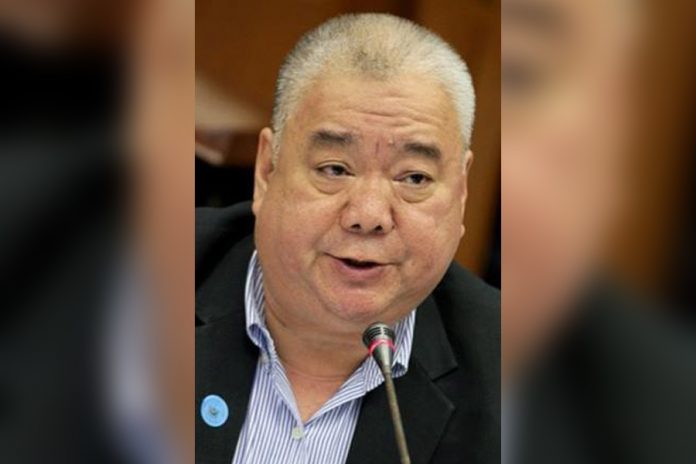
ILOILO City – The Sangguniang Panlungsod (SP) withdrew a resolution it passed in November 2014 declaring veteran journalist Manuel “Boy” Mejorada persona non grata.
Nearly four years ago at a Senate hearing on the alleged overpriced construction of the Iloilo Convention Center (ICC) – as part of the inquiry on the Disbursement Acceleration Program (DAP) of the Aquino administration – Mejorada called Iloilo City a “bird’s nest of corruption.”
The 2014 SP Resolution No. 2014-787 was authored by Councilor Eduardo Peñaredondo. Yesterday, it was also him who initiated the withdrawal of the resolution.
What happened in 2014 should be viewed differently this time, said Peñaredondo.
Mejorada’s intention may not have been to discredit the city but to call attention to and pre-empt official wrongdoing, said Peñaredondo.
The DAP was eventually declared unconstitutional by the Supreme Court. The ICC’s construction, however, pushed through.
Mejorada welcomed the SP’s move. He said it was “a vindication for me as it acknowledges, impliedly, the truth of my exposés about DAP anomalies.”
The veteran journalist and former Iloilo provincial administrator said the withdrawal of the 2014 resolution was “a slap on the face” of Sen. Franklin Drilon.
Drilon lobbied for the ICC’s construction – part of a major campaign for Iloilo City’s hosting of the 2015 Asia-Pacific Economic Cooperation Summit ministerial meetings.
Mejorada said Drilon should “be held accountable for the billions of pesos in DAP projects.”
“I thank our city councillors…and I thank God for keeping me strong all through these trying years,” he added.
In 2014 Mejorada accused Drilon of taking part in the alleged ICC overpricing. He filed a plunder complaint against Drilon before the Office of the Ombudsman.
But at the Nov. 13, 2014 Senate blue ribbon committee investigation, he admitted he had no evidence that the ICC was overpriced.
He told senators he relied on “public records, especially published online sources” like Wikipedia – a free web-based encyclopedia written by largely anonymous internet volunteers, but anyone with internet access could write and make changes to the entries.
“I have to admit that right now there is no evidence,” Mejorada told the senators. His reason: “…because I don’t have subpoena powers.”
Still, Mejorada insisted, “there are paper trails that will lead to conclusion that there was somebody orchestrating all these.”
When asked by Sen. Edgardo “Sonny” Angara who benefitted from the ICC, Mejorada replied: “Hindi ko po malaman ngayon…Hindi ko pa alam basta alam ko po may kumita dito (I don’t know at this point. I don’t know. All I know is that someone profited).”
Persona non grata is a Latin phrase which literally means “an unwelcome person.”
According to the online legal dictionary translegal.com, the phrase has a specific meaning in the context of diplomacy.
Pursuant to the Vienna Convention on Diplomatic Relations, a State may at any time and without explanation declare any member of a diplomatic staff persona non grata. A person so declared is no longer welcome in that country and is usually forced to return to his or her native country, says translegal.com.
In the non-legal sense, however, the phrase is commonly used to refer to people who are generally unwelcome, and also those who are no longer welcome in a group due to their actions, i.e. a police officer who snitches on his colleagues.
In the Philippines, the term has been used numerous times to declare a person “unwelcome” or banned in a specific place./PN



